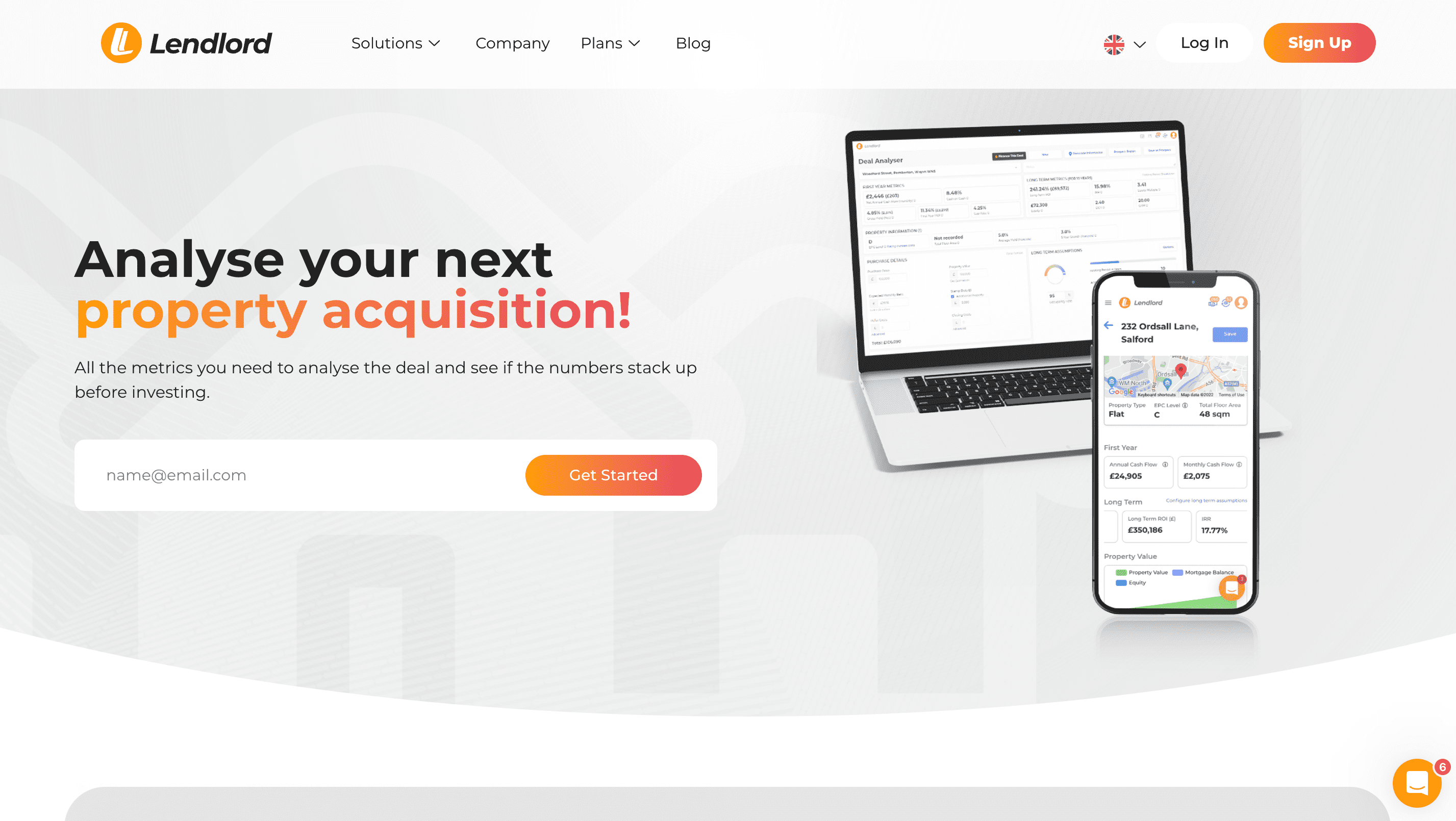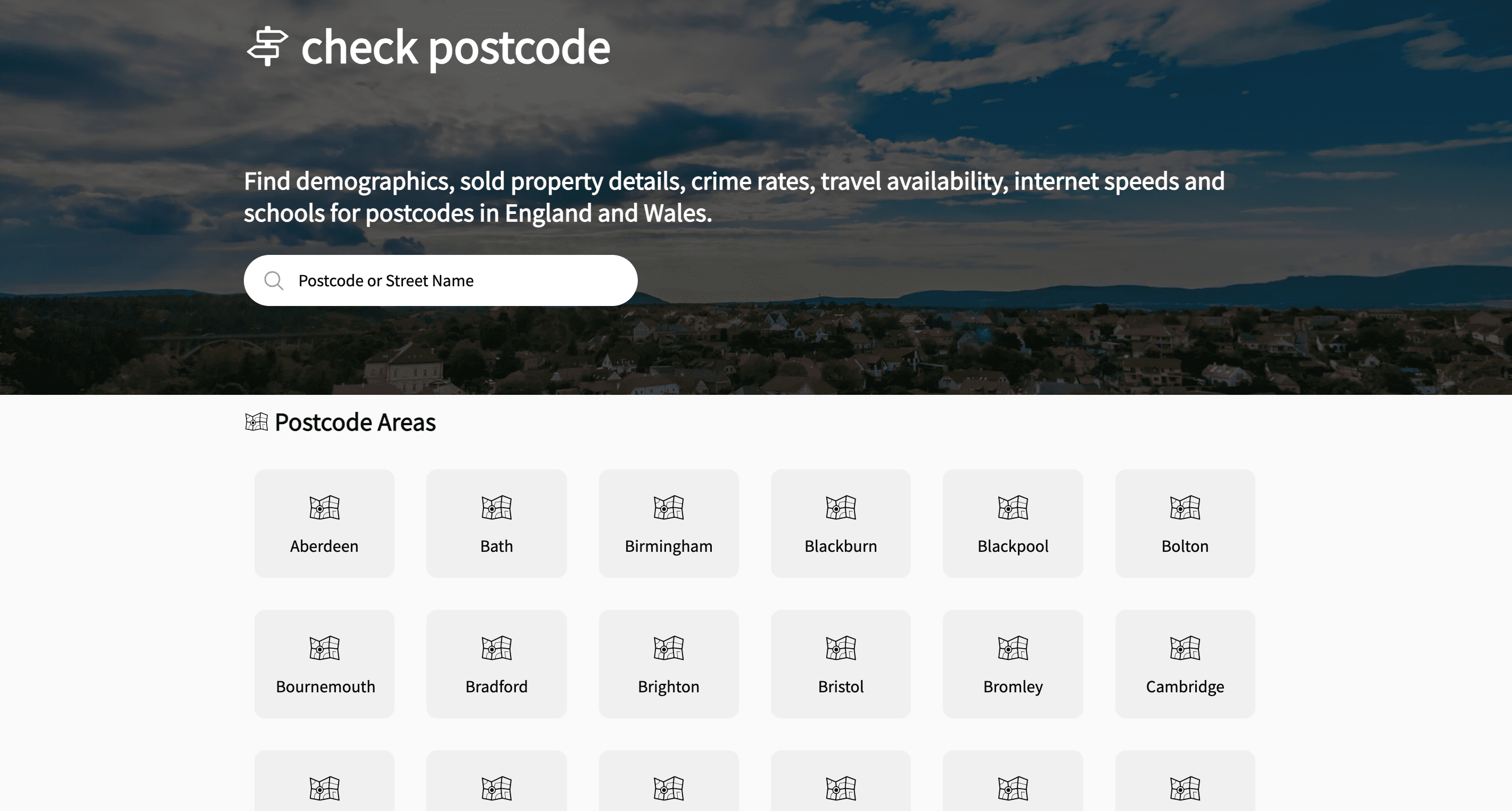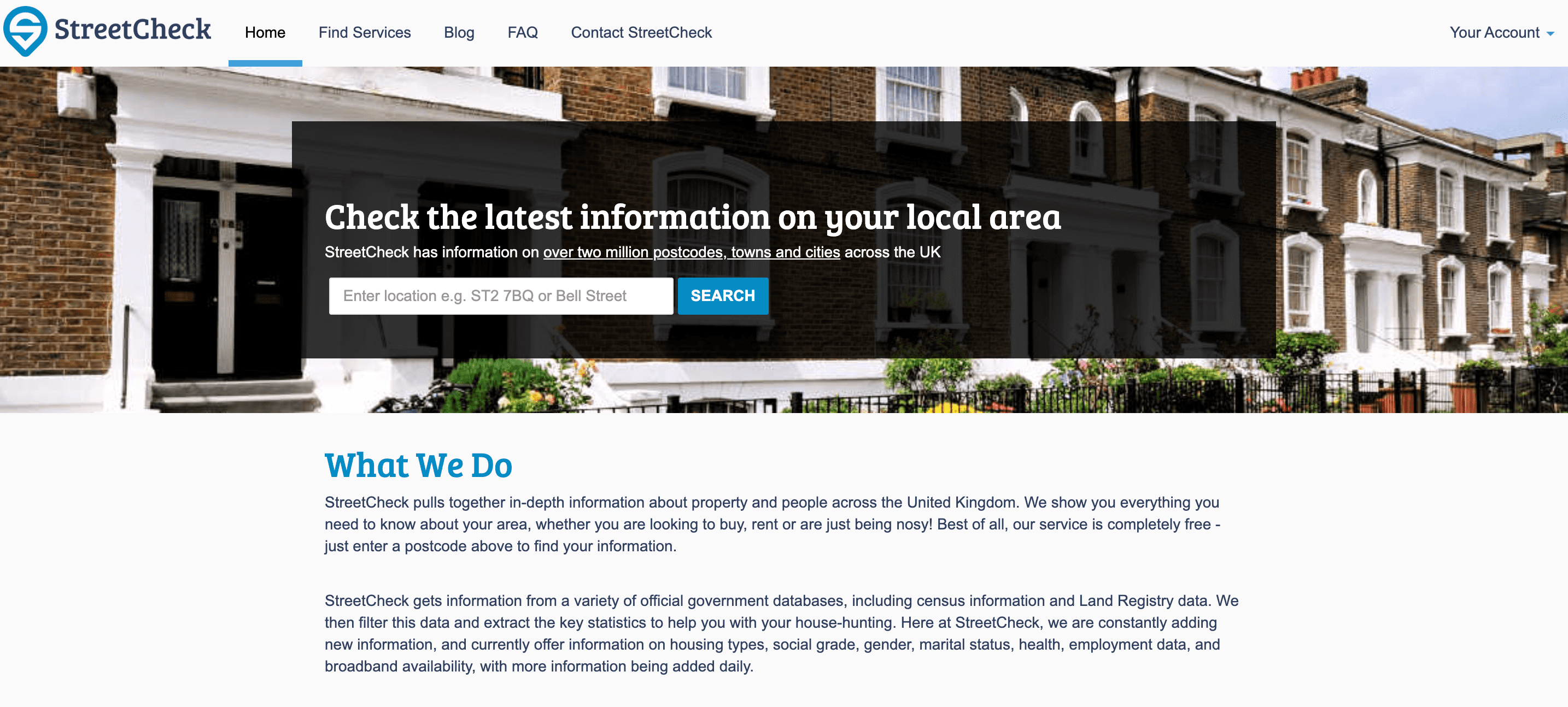Quick Navigation
- Property investment tools simplify the property analysis process, saving you time and preventing bad investments.
- Lendlord, Check Postcode, StreetCheck, and PropertyData are our favoured analysis tools.
Analysing a property deal isn’t exactly the most exciting process, there are a lot of steps to complete and even more information to find. Assuming that you don’t fancy spending each evening looking through planning portals and shifting through several sources of data to work out whether a certain rental property makes for a good deal or not; you may be interested in utilising a range of property investment tools to do the job for you in a fraction of the time that you would take.
At Amateur Landlord, we feel pretty confident in saying that the below four tools are the best currently available and should be part of every property investors research arsenal. They have a multitude of use cases including analysing the demographics of a certain postcode (providing valuable information such as housing tenure, the economic activity of the residents of the road and the percentile of council housing on a specific road), running the numbers to work out what your maximum purchase price would be and even offer management software for investors who already have a sizeable portfolio.
Lendlord and Property Data offer free packages with limited functionality whereas StreetCheck and CheckPostcode are completely free tools. The free versions of these tools should do the job if you’re a small-time investor or just getting into it but larger investors who are analysing multiple properties per month and/or already possess a portfolio, may want to consider upgrading to paid subscriptions.
1. Lendlord
Features:
- Deal Analyser (My favourite feature)
- Flip Analyser
- Postcode Analyser
- Property Value Estimator
- Portfolio Manager
- Cash Flow Tracking
- Mortgage Broker
- Bridging Loans
- Property Sourcing
Plans:
- Basic (Free) – All core Lendlord features are free to use although you are limited to how many times you can use them.
- Premium (£15 /Month) – Unlimited usage of all features.
2. Check Postcode
Check Postcode is another great tool that can be used to analysis the demographic and housing data for a particular postcode. We find that it’s updated more often with the latest census data and there is more information to dive into. However, it can become quite complicated at times so it’s best to look at Streetcheck first and use this as a supplementary tool.
Features:
- Demographic and Migration data
- The economic activity of residents (including hours worked and occupation)
- Housing Tenure Information
- Unemployment Type
3. StreetCheck
StreetCheck is a free tool for conducting postcode analysis. It’s a great addition to your property analysis tools arsenal. However, there is one thing to note about StreetCheck – the data can be a little bit outdated at times so it’s recommended that you cross check the results by using CheckPostcode as well.
Features:
- Housing Tenure Information
- Social Grade Information
- Culture Breakdown
- Economic Activity Information
- Crime Breakdown
- Broadband Analysis
4. PropertyData
With Property Data you can conduct thorough location analysis for any UK area.This includes postcode and rental property analysers. Each search costs you one credit – You receive a certain amount each month depending on your subscription.
Features:
- Yield Hotspots
- Postcode Analyser
- Area Analyser
- Council Tax Index
- Property Sourcing
- Property Value Estimator
- Comparable Finder
- Finance Finder
Plans:
- Free Trial – There’s a 14-day free trial available during which you can try PropertyData out.
- Basic (£14/Month) – 20 credits per month.
- Standard (£22/Month) – 50 credits per month.
Are Property Investment Analysis Tools Necessary?
Property investment tools such as the ones mentioned are highly recommended as they save you a tonne of time and help you to make better investment decisions. The most important part of investing in a property is conducting a thorough analysis of the deal to ensure a great return on your money and to minimise the risk of negative surprises further down the road.
Using tools such as these helps you better understand what you’re getting yourself into – especially important because you’re likely putting a lot of money into the deal. Spending a few quid on these tools can help you save thousands by avoiding potentially disastrous investments.
Do estate agents use these tools?
Estate agents will not present with detailed breakdowns of the property and the surrounding area so it’s unlikely that they will use these tools. It’s important to remember that no matter how friendly your estate agent is, their job is to sell you the property so they will never show you data that may deter you from purchasing the property. Hence why it’s so important that you conduct the research yourself and understand what you expect from your potential new home or rental property.
Where do these analysis tools get their data from?
These tools search the web for a variety of data sources, including public records found on the local authority’s site & portal, reports on the local population and its demographic breakdown and market research reports conducted by reputable parties.
How Do You Analyse A Property Investment Deal?
Analysing a property investment deal is far simpler than it sounds, especially when you come armed with a step-by-step checklist – view our property due diligence and location research guides to learn how to analyse property investment deals. For those who prefer a quick breakdown, it generally boils down to these two steps:
1) Research the city – you want to find the following information on the city that you are intending to invest into: the population (should be at least 250,000), whether or not the population is growing, whether properties in that area have seen growth previously, are there any ongoing/planned developments and finally, does it have good public transport and connections to other cities in the UK.
2) Research the postcode of the property – here is where the above tools will come in handy; you will want to use them to find the following information about the street: are there local amenities, is it easy to get into the city centre, are the nearby schools any good (this is an important factor for tenants with children), the demographic of the street including the unemployment rate, the crime rate, the social grade and the tenure type. You also want to find out what the demand for that postcode is, both the rental demand and the buyers demand.
Final Thoughts
As you embark on your property investment journey, arming yourself with the right tools can be the key to unlocking success. The analysis tools we’ve explored are your trusted allies in evaluating opportunities, estimating profits, and minimising risks.
Remember, no tool is a substitute for thorough research, market knowledge, and expert advice. These tools complement your expertise, providing valuable data and insights to enhance your decision-making process. Here’s to making savvy investment decisions and reaping the rewards of a well-analysed portfolio!

Victor Sterling
Hi, my name’s Victor - I’ve been investing in property for three years now, with my preferred strategies being buy-to-let, BRR and house flips. My goal with Amateur Landlord is simple - to provide beginners with easy-to-follow resources that simply weren’t around when I started, and to offer these for free and without ads.





